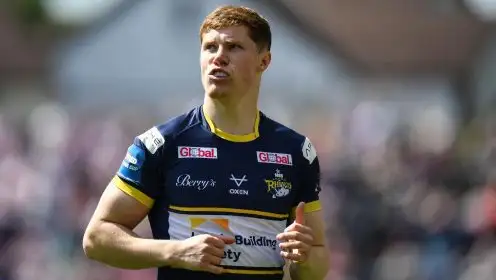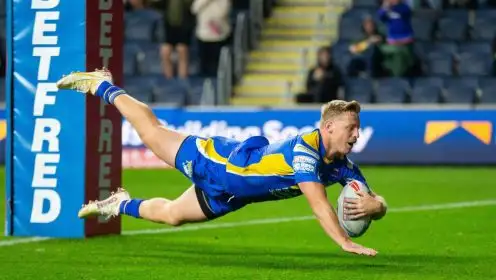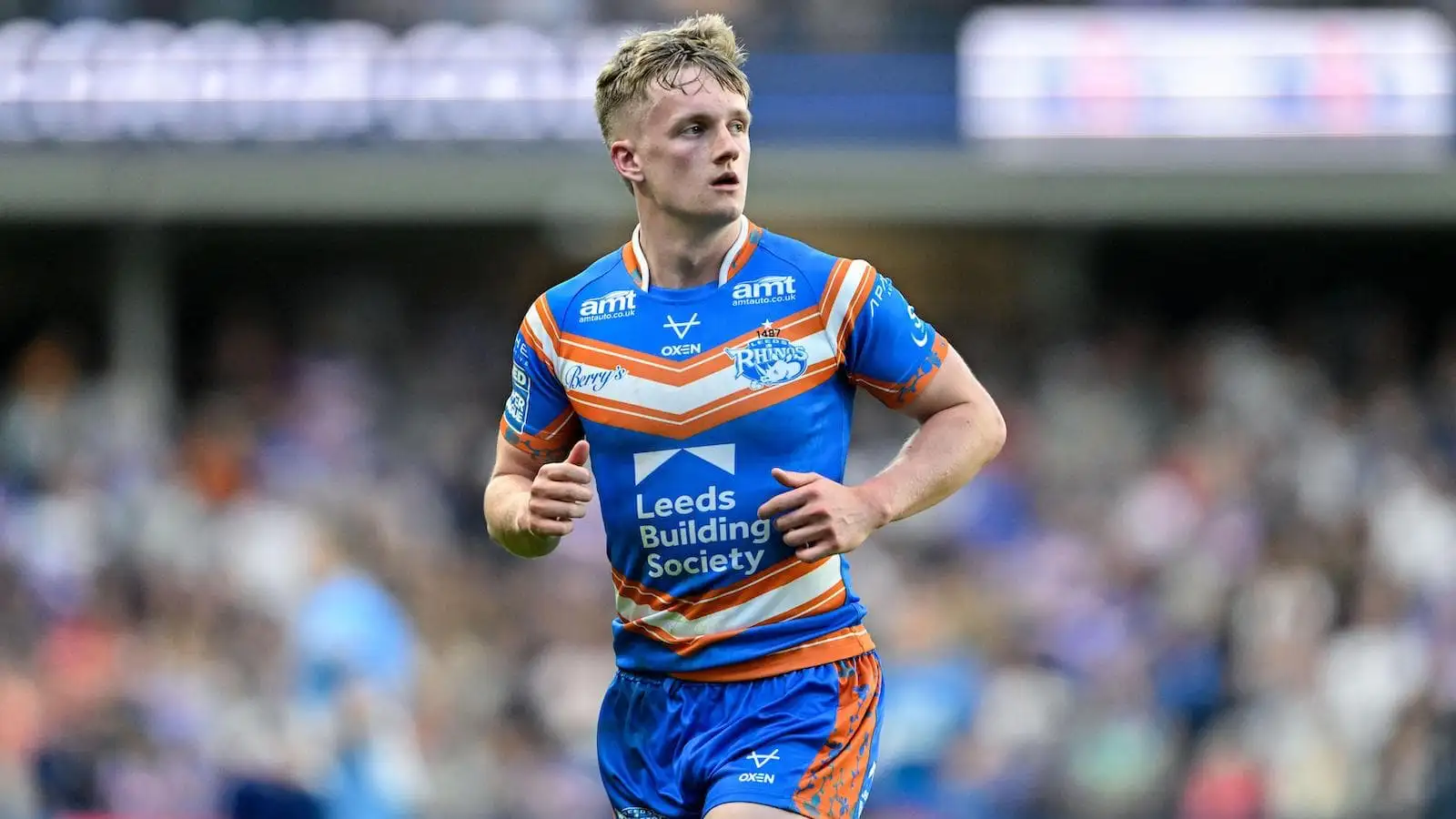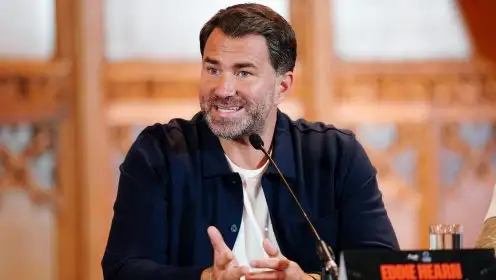Stevie Ward: I’m not vegetating, I’m cultivating
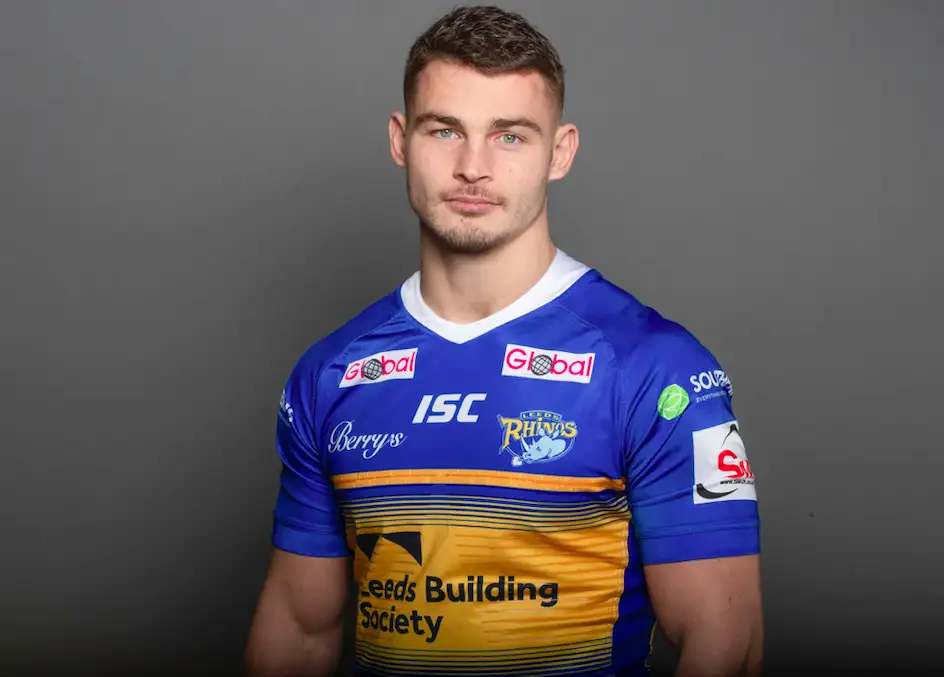
You knew Stevie Ward had to be good as soon as you heard his name. Not Steven, not Steve, not even Ste. Stevie. You have to be able to walk the walk if you’re going to be called Stevie.
I played against Stevie Ward in my early teens for Oulton Raiders against Churwell Chiefs. There’s no reason to know your opponent’s name at such a young age, but we knew Stevie Ward’s name. Everyone knew it. And everyone knew that Stevie Ward was going to play for the Leeds Rhinos.
Even Stevie Ward knew.
“I buzzed off it, me,” he says. “You take confidence from [the expectation] and have to prove them right for talking about you. That was the attitude I had. I used it in the right way as fuel to get better and prove them right for saying it. Growing up as a young lad I guess I was set to do that; it was just if my actions aligned with someone who wants to make it at that level.”
While Ward was comfortable dealing with the expectations of the entire rugby league community in Leeds, he still had to live up to the standards he was placing upon himself.
“Loads of pressure. Massive pressure. If I’d only scored three tries and the team had lost I’d have been f*cking p*ssed off because I’d have thought about one missed tackle or a chance that I’d missed. I probably thought about it more than an average 13-year-old just having a knockabout on a weekend.”
As a ‘regular’ person living outside the cutthroat nature of elite sport, it’s difficult to understand the mindset required of professional athletes to not just make it to that level, but remain there. Ward himself struggles to understand where the competitive edge which has been part of his psyche since such a young ages comes from.
“It’s maybe a combination of nature vs nurture. That’s the whole problem, it can’t really be pinned down.
“My grandad was a boxer in the army but I never met him. There must be a side of it to come from there. My parents come from a working class background. My dad worked in a print factory doing 12-hour night shifts when I was growing up and my mum worked in a job centre, handling all the trouble and the peaks and troughs of working in there.
“I can remember them saying they want me to have a life that they never had, and I can remember my dad saying, ‘You’re always going to have to do stuff that you don’t want to do.’
“You know those training sessions when it’s a Tuesday night in December and there’s a 20ft square of mud you’ve got to train on? I’d toss it up to my dad that I didn’t want to go and my dad would just ask me the question whether I wanted to do it. I’d have to come back with a bit of resilience to go and be there at that training session even if I didn’t want to do it.
“There’s a lot more I could think into but I’ve been really, really lucky to be given those tools at a young age.”
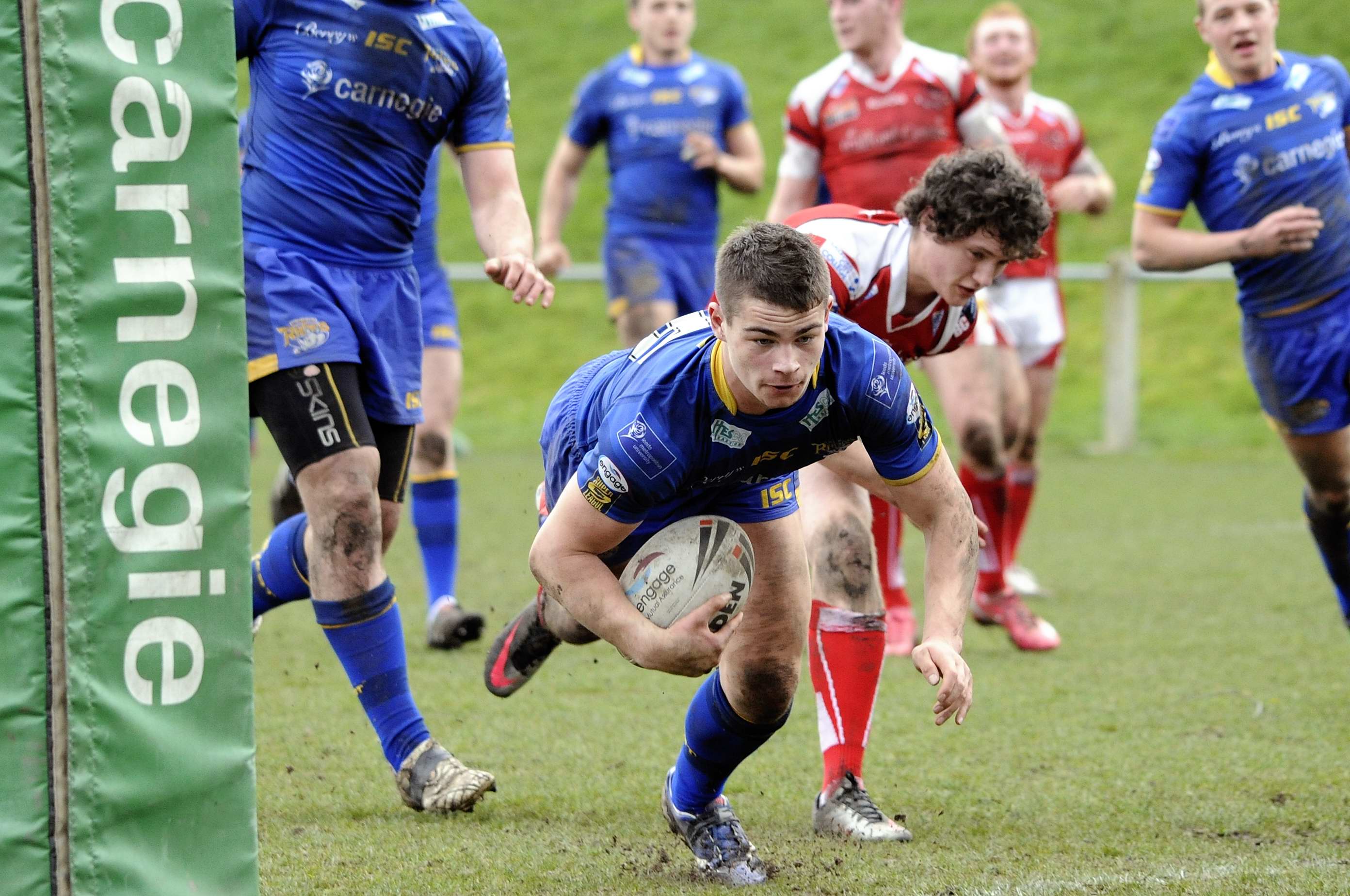
As a teen prodigy, Ward’s career trajectory went exactly as expected throughout his teens. In Leeds’ academy system he began to be compared to the Rhinos’ talismanic leader Kevin Sinfield, so much so his team-mates called him ‘Kev’. When he started playing for the first-team he would hear the name called out and think, “Does he mean me or does he mean Big Kev?”
By the age of 16, he was training alongside players he had grown up desperate to emulate: Keith Senior, Jamie Peacock, Danny McGuire and Rob Burrow. Physically, he was tiny, “but I guess I could still cause a bit of chaos in training and I ended up getting my debut at 18.”
It was a memorable debut, to say the least, but not necessarily for the right reasons. Ahead of a trip to St Helens in 2012, the entire Leeds squad dyed their hair red in support of Sport Relief, but the players were left with red faces as a Saints side trying to avoid their worst run of results for almost 30 years thrashed the visitors 46-6.
“It was bizarre. I remember having a red mohican and seeing everyone else with red hair. Obviously we got hammered. I came on for the last 30 minutes at stand-off and the game had already gone then so I just got thrown on to see what I could do.
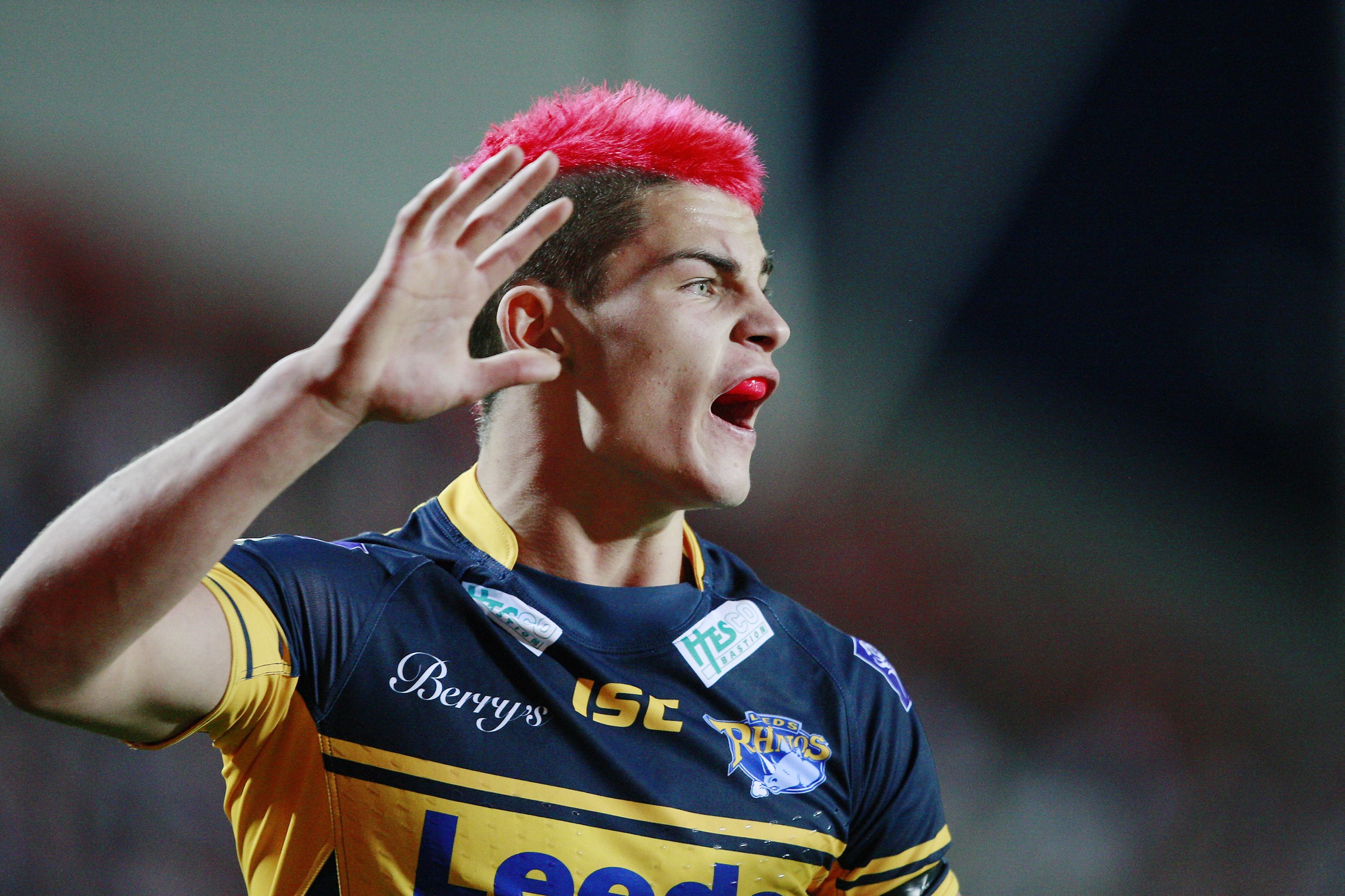
“It was a tough game but I do remember seeing the standard you have to be at. Even though we were getting hammered there was JP and Kev just being two steps ahead of everyone else. When everyone was tired they just kept doing what needed to be done and kept going forward even though we were losing. I can remember that and seeing how far ahead they were of me at that point and thinking, ‘That’s what leaders do.’”
Come the end of his maiden campaign as a first-team player, he’d started in the Challenge Cup final at Wembley as Leeds were beaten by Warrington and came off the bench as the Rhinos exacted revenge against the same opponents in the Grand Final at Old Trafford, leaving the field towards the end of the match with a dislocated shoulder.
“I remember coming off, and we were winning at the point, sitting in the changing rooms on laughing gas for the pain. I remember the doc coming in and saying, ‘Hally’s just scored, we’re going to win it!’
“I’m like half high and when he said that it was like, ‘F*ck, I’ve just won a Grand Final!’ It was mega.”
We’re chatting over cups of Yorkshire Tea in Ward’s house only a stone’s throw away from Headingley Stadium. He speaks quietly and considered, often pausing to take a deep breath while he searches for the right word or phrase to express himself.
We’re the same age, 25, and over the course of the interview it’s impossible not to be painfully aware of the fact he’s sat at his dining table with three Super League titles, two Challenge Cups and a League Leaders’ Shield to his name, having made over 100 appearances for Leeds and also captained the club. I, on the other hand, am sat there with a cup of Yorkshire Tea.
Yet Ward’s career, and life, has been anything but straightforward since his remarkable rise. He’s hobbling around his house with a bulky brace wrapped around his knee as he recovers from yet another injury, a reminder of a theme which has blighted him ever since that first Grand Final success seven years ago.
Given his myriad of injuries, there’s a cruel irony that one of the words which spring to mind while watching him on the field is ‘robust’. Propelled by that drive which took him from the muddy fields of Churwell to Leeds’ first-team, he throws himself into every collision as if he’s trying to shake the Empire State Building, while he also possesses the intelligence to run dangerous lines in attack and the skill to pick a cunning pass with the ball in hand.
The stories of his injuries towards the end of the 2015 and 2017 seasons are now well known, but for very different reasons.
The latter was an inspiring feel-good story, as the back-rower defied all logic only a week after dislocating his shoulder to play the full 80 minutes as Leeds upset Castleford Tigers in the Grand Final, having considered quitting the game days earlier when it appeared he was going to miss the showpiece event.
Ward’s heroism will go down in Leeds folklore, but what made the achievement all the more remarkable was the fact it wasn’t even the first time he had pulled such a stunt. He had suffered a similar injury when he was just 11, popping the AC joint in his shoulder, but played three weeks later as he couldn’t bear the thought of missing Churwell’s game against Featherstone Lions. To ensure he got through the game he put bubble wrap under his shoulder pads, which he could hear pop as he threw himself into tackles against his peers.
“That’s what I thought about in the week before the Grand Final, when I was sat there with my arm in a sling. It just set a light in my mind or an all-or-nothing confidence to say if I’ve done it before then there’s something in me to be able to do it again.
“That’s why I think rugby league is so special. You can make those bonds with team-mates and have such a purpose outside of yourself, which I guess is how I felt in 2017. It’s powerful if you can touch upon it.”
2015 was an entirely different story. It was meant to be the year of Ward’s redemption. In 2014 he had suffered from depression, feeling like he’d lost his identity as a rugby league player as he found himself unable to perform to the standards he had always set himself.
For a period of time he took a course of antidepressants, but his medication the following year was lifting weights, bulking up in the gym and rediscovering his best form as he became a key member of the Leeds side aiming to complete a historic treble.
With the Challenge Cup won, Ward travelled to Huddersfield for the final match of the season with the Rhinos needing a victory to secure the League Leaders’ Shield. After months of seeing his grandma suffer with cancer, he had attended her funeral on the morning of the game and arrived at the stadium bereft of energy, wondering how he could possibly play in such a high-stakes game.
Instead, he produced the performance of his life, scoring the opening try and leading by example as Leeds tried to mount a late comeback. Then, with minutes remaining, his knee collapsed beneath him. He was in the changing rooms when Ryan Hall scored that iconic winner with the last play of the game, trying to come to terms with the fact he would be missing the Grand Final and facing a long and arduous road to recovery.
Unlike 2014, however, Ward had the perspective to put the time while he underwent his rehab to good use. Mantality was launched, a website and podcast focussing on the mental health of millenials and incorporates the topics of sport, travel and lifestyle. Yet he’s only recently understood with hindsight the inception of the idea.
“I don’t know if this makes any sense to you, but I went to my nana’s funeral on that day. She did a fine art degree at 60, my nana. I remember at her wake in her small flat in Salford, we were looking at all her artwork.
“Basically, she was doing this degree to take something back for herself having played that role all her life of being a wife at home and being a nanny really as well. She’d done all that and she wanted to do something for herself. There were loads of quotes in there, and there was one which said, ‘Don’t vegetate, cultivate.’
“On that day, on that moment, I remember looking at my knee later that night thinking ‘How the f*ck…this is not how it’s meant to go.’ I thought I was going to score a try, which I did, and win the League Leaders’ Shield. But I was sat there four minutes from the end with my knee like that.
“I only connected the dots a few months ago looking back. I looked at the art work again and saw all those quotes and saw the passion in her artwork and really realised it. I was like, ‘Wow, that’s nuts!’ So I’m sat here now and I’d like to think I’m not vegetating, I’m cultivating.
“It was obviously what I needed to do. I don’t think I consciously knew it looking at my knee but a few months down the line I knew I had to do something with my time and that goes back to living out those values. When I was 19, I didn’t really understand my values or appreciate the importance of living to them, but through the spell of injury through 2016 I started to take a lot more of a focus on this and this helps me today. I can’t stress enough the importance to become conscious of your own mental health.
“I’ve got a bit of a playbook and a tried and tested route to go down now. I know my values as a human being, I know what I’ve operated by since I was younger. I can work that out from conversations with different people.”
Those values include an insatiable appetite for learning, which is why after we speak he has his weekly two-and-half-hour Spanish lesson and has also enrolled on a psychology degree online. Another is to make connections with people, whether that be through offering words of advice to a younger team-mate or wanting to start mentoring at his former high school to provide guidance to those who are less fortunate than he was growing up.
Towards the end of the interview, Ward explains something else he touches upon in difficult moments. It’s the story of the Chinese Farmer, a parable popularised by the philosopher Alan Watts.
“It allows me a bit of breathing space when I see it, and I revisited it after this injury again.”
The story goes that once upon a time a Chinese farmer scraped together his money for a year in order to a buy a horse. The following day, the horse ran away, much to the commiserations of his neighbours: “We’re so sorry your horse ran away, that’s terrible news.”
The farmer, however, remained calm. “Maybe,” he replied.
Eventually, the horse returned to the farmer, accompanied by several more wild horses, with his neighbours now suitably impressed: “Now you can make even more money, that’s great news.”
The farmer was again unmoved. “Maybe,” he replied.
His son later tried to tame one of the wild horses, only to fall off its back and break his leg. One again the neighbours expressed their concern: “We’re so sorry for your bad news.”
The farmer was still resolute. “Maybe,” he replied.
While his son was recovering from the broken leg, China became embroiled in a war, and conscription officers visited the village to enlist every able-bodied man. Due to the son’s injury, he was spared while other young men were sent to their slaughter. His neighbours were overjoyed: “You’re so lucky, that’s brilliant news!”
“Maybe,” the farmer replied.
With that, Stevie Ward finishes his cup of tea and offers himself a wry smile.
By Rob Conlon
